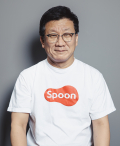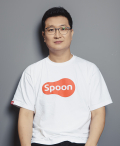-
KOSPI 2577.27 -2.21 -0.09%
-
KOSDAQ 722.52 -7.07 -0.97%
-
KOSPI200 341.49 +0.02 +0.01%
-
USD/KRW 1396 -2.00 0.14%
 Future Unicorns
Future Unicorns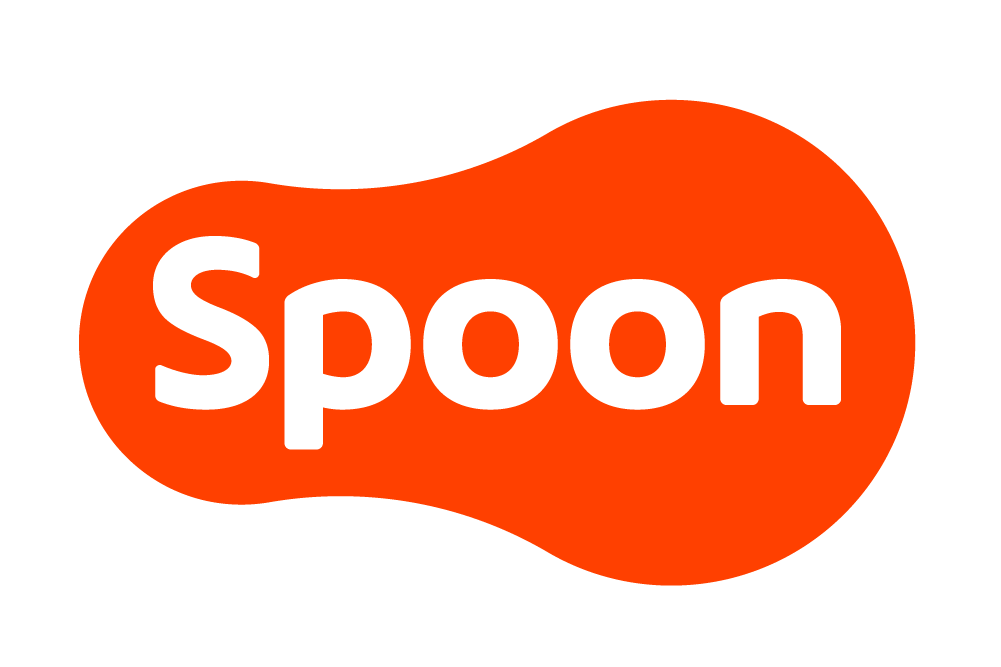
Spoon Radio
Streaming Service
Spoon Radio is an online audio streaming platform with 250,000 streamers and 2.5 million listeners worldwide. It launched Korea's first audio-oriented mobile service where users can create and broadcast their own live radio channels. As an audio-only platform, Spoon Radio continues radio's positive legacy and has also captivated Generation Z by strengthening its position as a two-way media. It addresses the need of those who want to share own stories without having to show their faces like in video streaming. KB Investment is the lead investor for both series B and C rounds.
Published: 2021-02-02 13:52:53
Last updated: 2021-03-19 13:07:31
- Story
- Data
Heralding a New Heyday of Radio with Online Streaming
‘YouTube of the Audio World’ Captivates Generation Z
“You’re listening to DJ OOO’s radio station!”
The audio-based social networking platform Spoon Me was running a beta test in 2015. The platform was created as a support space where users could share their personal stories with full anonymity through voice instead of by text. While it drew a multitude of young users in their teens and twenties, its revenue model was unclear.
During the test period, something unusual caught the attention of the management team. The users, one after another, were uploading audio clips in a radio talk show format. The clips immediately garnered a positive reaction among users, who started heating up the comments section below the clips.
Neil Choi, the company’s founder and CEO, was curious to understand the new trend.
He had a lot of questions: ‘Who are these users? Why are they setting up one-person radio stations here, rather than on other platforms like YouTube or Afreeca TV? And above all, isn’t our user base predominantly made up of millennials and Generation Zers who have never listened to radio stations?’
It was important for Choi to understand this bizarre phenomenon. But even more importantly, it was then when he realized that Spoon Me could take its first step in building a solid, sustainable revenue model by addressing these underserved needs of young users.
This was the critical moment when the nascent startup pivoted to transforming itself from just another social media forum to an online radio broadcasting platform. The idea of launching Spoon Radio – now referred to as the “YouTube of the audio world” – was born.
Contents
Click to move to each section
- [Identifying Unaddressed Needs] Anonymity and Interaction
- [Revenue Model] Donations, Subscriptions and Advertisements
- [Scalability] Grand Plan to Win Radio Advertising Market
- [Team Building] Bulldozer-like Execution and Data-driven Corporate Culture
- [Threat of New Entries] Dominant Market Leadership by 2024 with Original Content and Quality Service
- [Funding] Additional Fundraiser Planned in H2 2021 to Accelerate US Growth
[Identifying Unaddressed Needs] Anonymity and Interaction
After a few rounds of visits, Choi realized that the users weren’t trying to recreate radio channels in the earlier sense. Rather, these young streamers said they were just trying to have fun together after they were finished sharing their issues.
One streamer commented, “After sharing my troubles with other users and finding a clear way out of my problems, I suddenly felt somewhat bored. But I loved this new platform where I could talk to others. So, I just decided to create a kind of radio channel on my own to have some fun.”
Ironically, Spoon Me platform might have been too effective as a medium for resolving private, personal issues. Interestingly, Choi learned that the users who had set up radio channels were those who had been most proactive in sharing their troubles and listening to those of others.
These young radio DJs told Choi that they never found the old one-way media captivating. Rather, appealing media platforms were ones that involved personal interaction and could be casually enjoyed like a good round of chitchat with close friends over the phone.
“Then, why not on YouTube?,” asked Choi. The radio DJs were unanimous in saying that YouTube was too embarrassing. They would have to show their faces, which could potentially lead to leaks in personal information as well.
The streamers also commented that podcasts were not an option given the high entry barriers. First, you had to host your own server. Second, it took long time to get Apple’s approval. Last and most important, the podcast scene in Korea was filled with political content. Among the younger generation, podcasts were something for the older generations – not fun, not cool.
“After listening to the users, this idea of dividing the streaming market into a 2-by-2 matrix suddenly came into my head”, reflected Choi. “First, video versus audio. Second, user-made content versus expert-made content.”
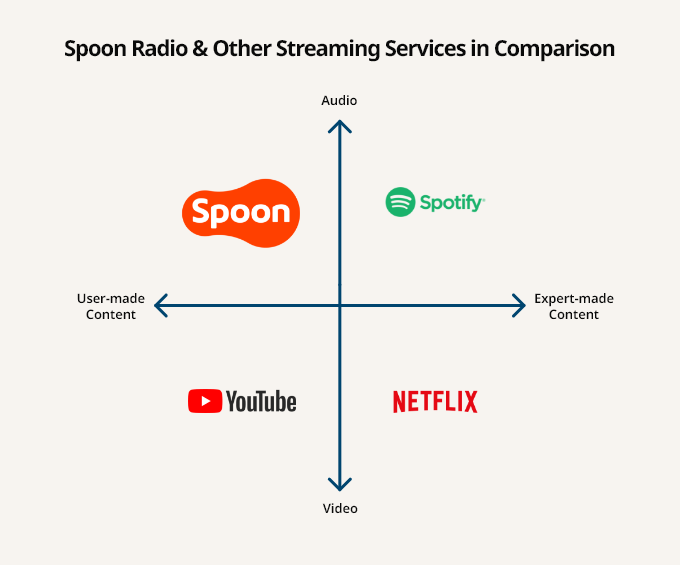
“That was the white space I wanted to fill. I thought I could create a ‘YouTube of the audio world’ by transforming Spoon Me to address users’ unmet needs,” said Choi.
He changed Spoon Me’s name to Spoon Radio, and devised a clear business identity as an online radio platform. Spoon Radio was launched in March 2016, after several months of preparing the new direction.
[Revenue Model] Donations, Subscriptions and Advertisements
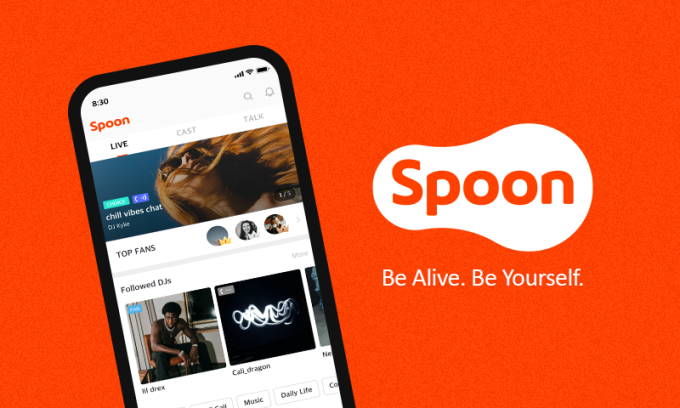
Percentage-based handling fees taken from users’ donations are driving the company’s revenue model, as of February 2021. Through in-app payments, the users can purchase virtual currency, or stickers, to donate to their favorite DJs. The stickers vary in price from 100 won (about 90 cents) to 300,000 won (about $27).
Of the donation, the radio DJs get 60%, while app market providers such as Apple or Google take 30% as commission. Spoon Radio collects the remaining 10% as a handling fee.
The users donate for three main reasons. First, out of adoration as a fan. Second, to show thanks for the content. The third reason, interestingly, is rooted in the competitive nature of fans. As the DJs often mention the donors out loud and even ask how they are doing, the fans make donations in hopes of being recognized.
The bulk of the stickers are purchased by a small portion of users, who purchase them in large amounts. Top Spooners on the platform raise monthly donations in the tens of millions of won.
Spoon Radio raised annual revenue of 48 billion won (about $43 million) in 2019 and over 80 billion won (about $72 million) in 2020, all from sticker sales.
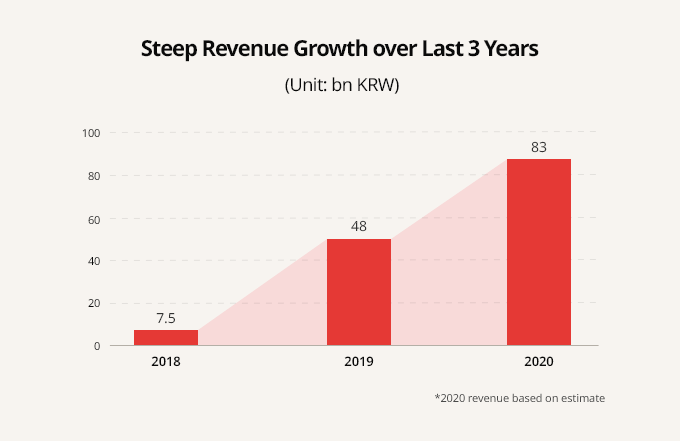
The company’s revenue growth is expected to accelerate even further from 2021, as it plans to diversify its revenue streams to include subscription and advertisement.
Subscription-based services will be offered within the first half of the year, as pop idols and experts in different fields are more and more interested in offering specialized content to the listeners.
The young CEO noted that while donating to online content creators is common practice for users in their teens, it is not the case for older users, even for those in their late 20s. Adopting a subscription service, a payment model more familiar to age groups above teenagers, would allow the company to extend its user base.
The subscription fees are to be set by the Spooners themselves. Spoon Radio expects that these exclusive channels, especially those in the areas of personal and professional development, such as foreign language education, will attract subscribers in their 30s and 40s.
Advertising options will be launched in the second half of 2021. As with YouTube, the profit will be shared by the creator and the platform. The advertising model targets users who are not interested in donations nor subscriptions.
Spoon Radio stated that they are introducing subscriptions and advertising serially as opposed to all at once, as these new revenue streams are most effective when the number of users have reached a critical level.
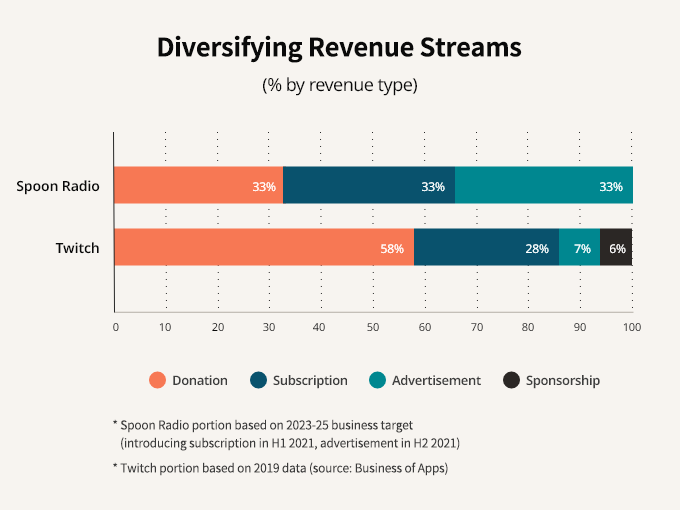
[Scalability] Grand Plan to Win Radio Advertising Market
First, audio allows nearly complete anonymity whereas video cannot. Also, audio can be recorded easily without filming, which is required for video content.
Second, audio stimulates and enriches the imagination. Listeners can only hear the broadcaster’s voice and must imagine the person in their own minds.
Third, audio can be consumed while multi-tasking and, according to Choi, “without prior planning.” Whereas a video requires a viewer’s complete attention and thus needs some planning on when to start watching, audio can be turned on at any time and enjoyed in the background while doing other work. Such spontaneity is what attracts Gen Zers to radio streaming, according to CEO Choi.
The company envisions that like YouTube, which eclipsed TV content, Spoon Radio will replace the old radio market that doesn’t appeal to younger generations. While Choi acknowledges that major radio stations are trying to increase interaction with listeners by inviting them to their studios, he emphasizes that unlike those featured on Spoon Radio, the number who get invited and whose voices can be heard remains minimal.
While the medium of radio has many unique attributes, it must be noted that the radio advertising market in Korea is relatively small. The total market size is 300 billion won (about $270 million), with two-thirds of the market controlled by the three major terrestrial radio companies.
Judging that the domestic radio market – even if Spoon Radio had 100% share of it – couldn’t match the size of his ambition, Choi has been targeting overseas markets since the company’s launch. Japan’s radio advertising market size is valued at 1 trillion won (about $897 million), whereas the US radio market is estimated at 5 trillion won (about $4.5 billion).
That decision to focus early on the international scene proved a good one. Spoon Radio entered Japan in 2017 and now earns more than 50% of total annual revenue there, surpassing its domestic performance.
Choi commented that the anonymous nature of radio was the key success factor in Japan.
Spoon Radio discovered that Japanese users highly value anonymity, seen by the common practice of uploading anime images on their profiles rather than photographs of themselves. Spoon Radio’s marketing team in Japan is made up solely of local employees, to effectively serve the distinct needs of the Japanese market.
Riding on its success in the Japanese market, Spoon Radio extended its regional focus to the US, making market entry in 2020. Spoon Radio has been spending heavily on marketing campaigns in US with a renewed brand identity, and said that it will continue its marketing efforts there throughout 2021.
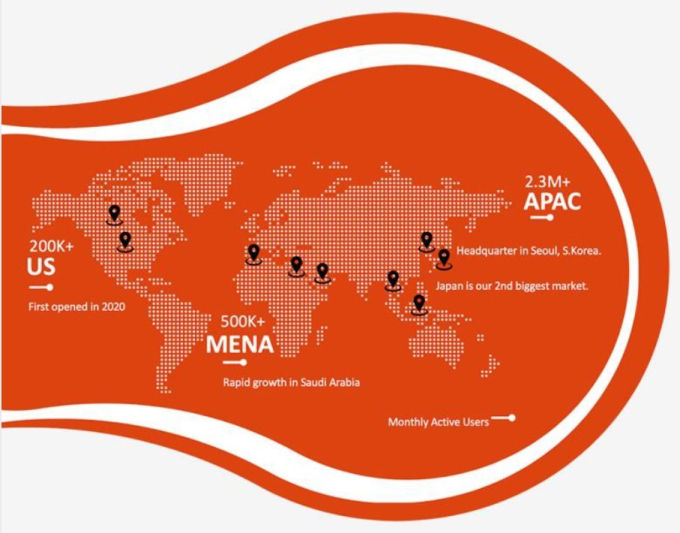
[Team Building] Bulldozer-like Execution and Data-driven Corporate Culture
But when manufacturers shifted the paradigm to use embedded batteries like the ones used in phones today, Choi had to shut down the operation; thus facing his first failure as an entrepreneur.
The bright side of the story is that Manddang’s investors had given extremely positive feedback to Choi and his team for their execution and resilience. Choi and other founding members were known for their spirit and dedication, dancing in Seoul’s busy Hongdae district during a marketing promotion and delivering battery supplies to Gangnam in person in the dead of winter.
“KB Investment decided not to invest in us at the time, but its Managing Director Wonjin Lim gave me a lot of personal support, cheering me up with rounds of soju in difficult times. After we pivoted our business model to online radio streaming, KB Investment was among the first to invest, right after we received series A funding from Altos Ventures.”
Spoon Radio’s investor lineup includes big-name VCs such as Altos Ventures and Goodwater Capital. Choi said that “While investors value passion and execution in the early stages of a startup, it’s far more important to show performance and deliver tangible results, as these are the criteria they evaluate us on now.”
A guiding principle of Spoon Radio is that no one can make a business decision based purely on intuition, and the founder himself is no exception. Team members need to persuade each other based on facts and data. Choi believes this ensures that the company is not only working hard, but also moving in the right direction.
Spoon Radio boasts a balanced talent pool for optimal performance in all business sectors: software developers make up one third of employees; marketers another third, and support staff the remaining third. Such a balance addresses key areas of competitive momentum: top-notch sound quality; disruptive marketing, especially in overseas expansion; and satisfying user experience.
“Glocalization,” a strategic approach that integrates globalization with localization, is another strength. Spoon Radio is aggressively expanding its global presence with offices in Japan, the US, Indonesia and Vietnam, and these offices are run by local employees who have full autonomy in making key business decisions, including service operations and marketing.
For instance, Spoon Radio’s US office is managed by Fernando Pizzaro, who has more than 20 years of content business development experience at multiple companies such as Walt Disney Co. and Yahoo Inc. Pizzaro and five other members in Korea make up Spoon Radio’s global leadership team.
[Threat of New Entries] Dominant Market Leadership by 2024 with Original Content and Quality Service
“We are facing more competition, which is good in the sense that it will drive the growth of the whole industry,” said Choi. “But it is inevitable that this market will see a winner-takes-all conclusion. That’s why we are targeting dominant leadership within the next two to three years.”
The company asserts that the best way to maintain competitive edge is making swift actions in addressing the growing needs of both creators and listeners. To become the audio platform that is most liked by and most profitable for the creators, Spoon Radio is investing heavily on sound quality and original content.
To offer an unmatchable sound experience, Spoon Radio has hired in-house audio engineers and built its own broadcasting. The company firmly believes that the foremost reason DJs choose Spoon Radio over its competitors is the superior sound quality.
The startup also expects that its original content, ‘Spoon Original’, would help retain the users within the platform by further enhancing their experience. Its first task is to possess production capability to create content in a continued sequence, just like Netflix Originals. For the task, Spoon Radio hired producers who are responsible for planning and discovering innovative content, as well as forming contractual partnerships with individual DJs.
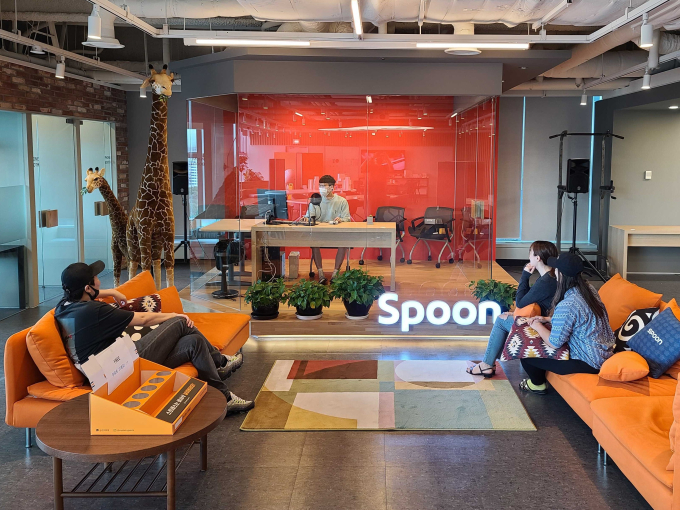
[Funding] Additional Fundraiser Planned in H2 2021 to Accelerate US Growth
In the previous round of series B funding the primary goal was the Japan market entry, and the company received funding from Altos Ventures, KB Investment, Softbank Ventures and Goodwater Capital.
KB Investment’s Managing Director Wonjin Lim said, “Choi’s unique ability to put ideas into action is simply fascinating. Such focus on execution has become Spoon Radio’s corporate culture, driving all the teams to global growth.”
He added that KB Investment is supporting the startup’s global market expansion with the judgment that it “has great team members who have the potential to turn the vision of creating a widely enjoyed global service into a tangible reality.”
Spoon Radio is in discussion for another round of fundraising in the second half of 2021 to fuel further growth in the US, the most important region for the company’s sustained growth.
Choi remarked that “TikTok spent billions of dollars on marketing and promotion in the US. We believe that having enough funds is the first condition of success in the audio streaming market, which is just taking off.”
By Gayung Chu; edited by Daniel Cho
(gychu@hankyung.com)
- [Identifying Unaddressed Needs] Anonymity and Interaction
- [Revenue Model] Donations, Subscriptions and Advertisements
- [Scalability] Grand Plan to Win Radio Advertising Market
- [Team Building] Bulldozer-like Execution and Data-driven Corporate Culture
- [Threat of New Entries] Dominant Market Leadership by 2024 with Original Content and Quality Service
- [Funding] Additional Fundraiser Planned in H2 2021 to Accelerate US Growth



